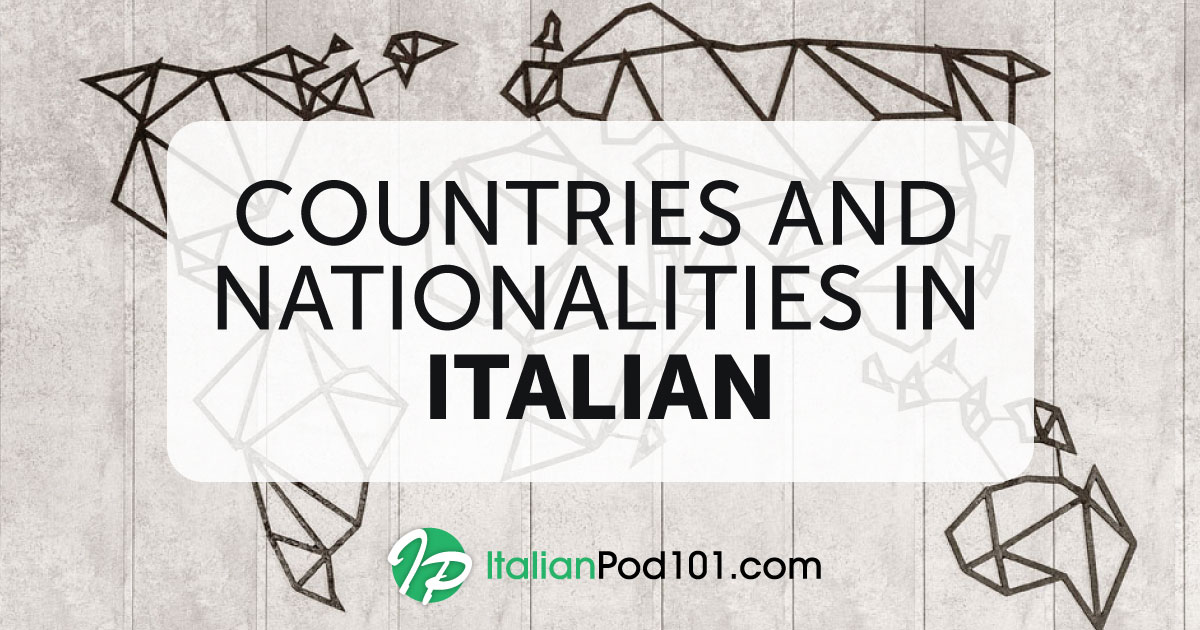Archive for the 'Italian Lessons' Category
May 28, 2010
Do People Understand Where You’re Coming From in Italy?
Imagine you have landed in Italy and are out and meeting people and exploring your surroundings. After you say "Ciao!" ( the equivalent to 'Hello' in English), your Italian friend may become more curious about you and your origins. And if your new friend asks you:
Da dove vieni?
Don't be surprised! Your friend just wants to know where you come from. Da dove vieni? (informal) or Da dove viene? (formal), translates to "Where do you
come from?"
In this case, you should answer with your country of origin. For example:
Vengo dall'Italia (I come from Italy)
You may also hear Di dove sei?, which also means "Where do you come from?" , with the small difference that Di dove sei? requires a more specific location, and you should... Show more
May 21, 2010
A Night to Remember in Italy
The Focus of This Lesson is Italian Greetings for the Evening Buona sera. "Good Evening."
Good Evening
buona sera (also written buonasera) is the perfect equivalent for "good evening" and as such you should use this term when meeting someone.
Instead, you may use buona serata (never written buonaserata) to wish someone a nice evening. You should not use this greeting when meeting someone for the first time or upon entering a place.
When someone is about to go to bed, buona notte (also written buonanotte) is almost exclusively the word people use.
May 20, 2010
Do People Understand Where You’re Coming From in Italy?
Imagine you have landed in Italy and are out and meeting people and exploring your surroundings. After you say "Ciao!" ( the equivalent to 'Hello' in English), your Italian friend may become more curious about you and your origins. And if your new friend asks you:
Da dove vieni?
Don't be surprised! Your friend just wants to know where you come from. Da dove vieni? (informal) or Da dove viene? (formal), translates to "Where do you
come from?"
In this case, you should answer with your country of origin. For example:
Vengo dall'Italia (I come from Italy)
You may also hear Di dove sei?, which also means "Where do you come from?" , with the small difference that Di dove sei? requires a more specific location, and you... Show more
May 6, 2010
First Impressions can last a lifetime!
As you may have seen in Italian movies or during your stay in in Italy if you had the chance , you will notice that ciao is the easiest and most common Italian greeting people use to say "hello" or "goodbye."
Usually though, you should only use this greeting with people whom you are well acquainted with, such as friends or
relatives.
As a special case, you may notice that it is common to address foreigners entering into Italy with ciao. The reason for this is that it's
a friendly and easy way to greet them. Sometimes owners of casual, modern shops may greet customers with ciao as a way to keep social distances at a minimum and make talking easier and faster,thus making you feel more comfortable (and this way making their... Show more
December 25, 2008
Happy Holidays and Happy New Year From ItalianPod101.com!
Happy Holidays and Happy New Year from everyone here at ItalianPod101.com! We're grateful to have listeners just like you, and we're eagerly waiting for the upcoming year to learn Italian together!
And when the New Year comes around, be sure to make a resolution to study Italian with ItalianPod101.com!
Have a healthy and happy holiday season.
From the ItalianPod101.com team!









